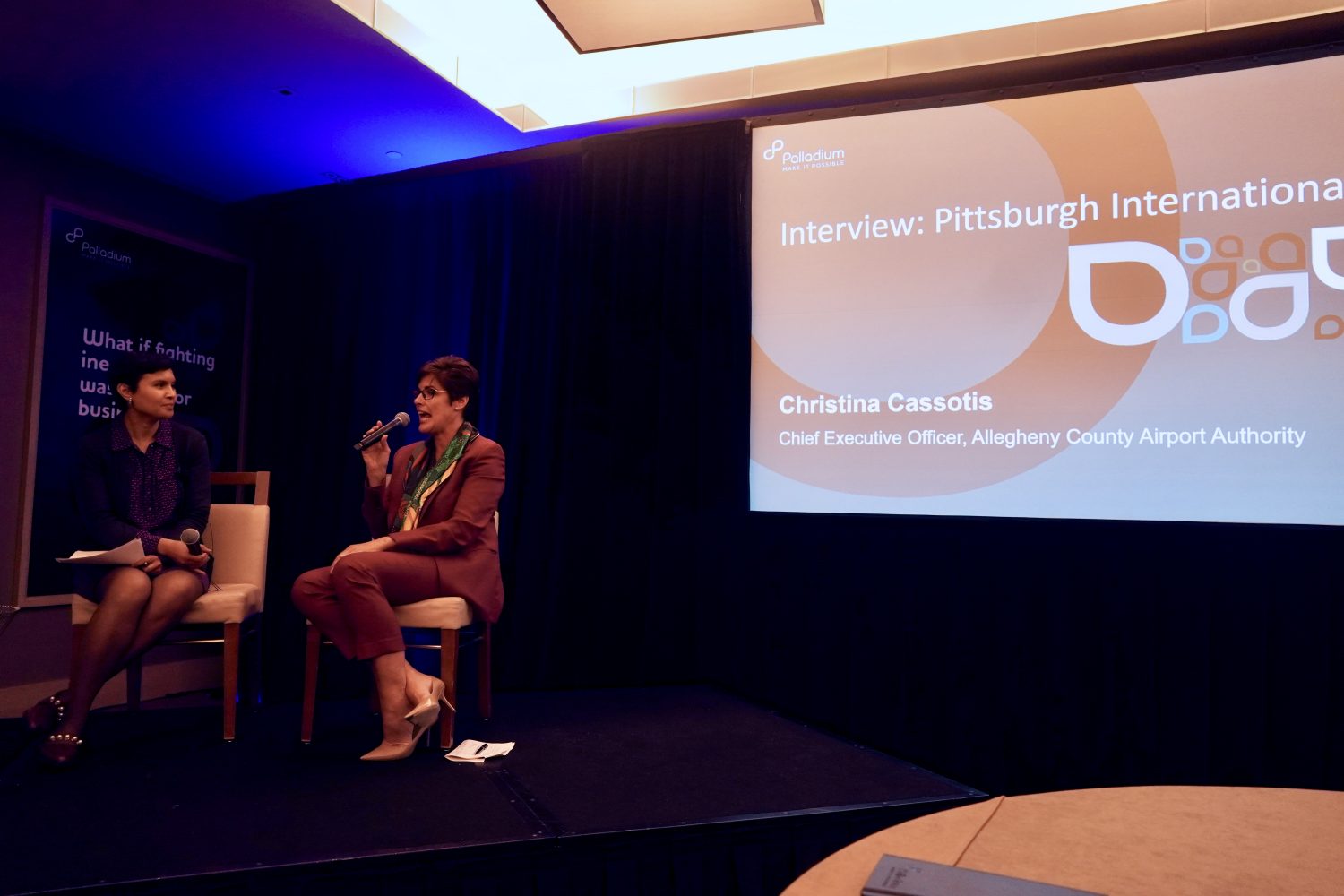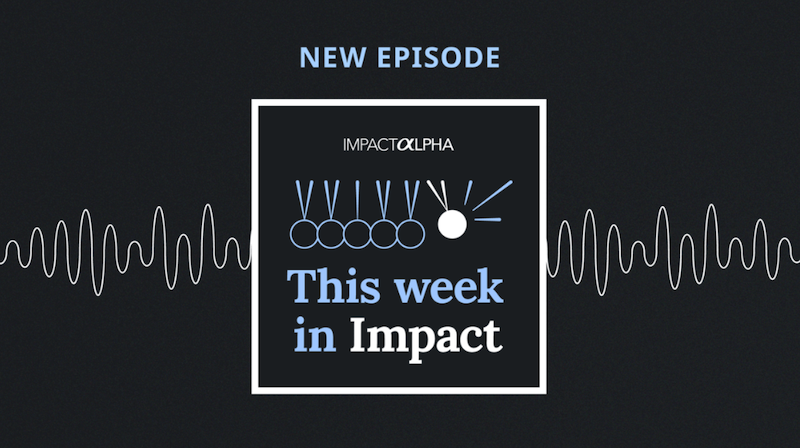New York, NY – Investors, executives and other industry experts gathered in New York this week at Palladium’s “impact at scale” summit. The international advisory firm last year unveiled its roadmap for inclusive growth. This year was all about implementation.
“Impact needs to be measurable and intentional,” said Harvard’s George Serafeim in the keynote, where he made the case that social impact drives better business and financial returns (ImpactAlpha is a media sponsor of the Positive Impact Summit).
Shamina Singh of Mastercard Center for Inclusive Growth said the firm’s full assets are needed to drive impact. “We show up with capital. We show up with data. And we show up with people,” she said. “We are digital foot soldiers.”
Christina Cassotis, head of Allegheny County Airport Authority, talked about the importance of engaging local communities members in turning around Pittsburgh’s airport.
Community finance. Stable housing translates to better health, said Kaiser Permanente’s Bechara Choucair. Last year, the Oakland healthcare nonprofit launched a $200 million impact investing initiative to prevent homelessness prevention and promote affordable housing for low- and middle-income families. Kaiser partnered with Bay Area Community Services to house 515 homeless seniors. “We were successful to get 301 of those folks in the last six months off the streets,” Choucair said. “Ninety percent of these 301 people who are already housed out of that cohort have mental health issues and/or substance-abuse issues.”
Follow the money. Smallholder farmer finance in India is “the kind of service that can go a long way, especially given the context that the majority of the people depend on agriculture for their livelihoods,” said Hannah Schiff of TIIA’s Nuveen, which manages more than $1 trillion in assets. In May, Nuveen led the $55.6 million round of Chennai-based Sammunatti to provide farmers with financing, as well as agricultural products and services. Schiff says the global investment manager has invested $500 million in inclusive growth strategies over the past 10 years. “It’s about increasing the availability of basic services like financial services, healthcare and education.”
Small and growing businesses. Impact at scale requires capital for dynamic, growth-oriented businesses in emerging markets that provide everyday products and services and create jobs. Palladium’s Steven Van Weede, Drew von Glahn of the Collaborative for Frontier Finance, Andrew Tillery of the Palladium Impact Fund, UNCDF’s Esther Pan Sloane and John Fairhurst of the Global Fund were on the case. Such ‘bread-and-butter’ companies are too small and risky for banks and not sufficiently aggressive for venture capital investors. Von Glahn offered a few takeaways:
- Right capital. Small and growing businesses have specific financing needs, including working capital, small-ticket asset equipment financing, and venture growth funding to support the “soft assets” that are prerequisites to growth. New instruments, such as structured financing, can be more flexible than traditional debt and equity instruments.
- ‘Right’ rate of return. Dynamic, growth-oriented businesses in emerging markets are risky, but not as risky as perceived. More data and experimentation are needed in order to better understand the relative risk of these businesses, and therefore the commensurate return requirements. Appropriately applied ‘smart subsidies,’ like first-loss capital, can help get capital into the market to better understand risk.












